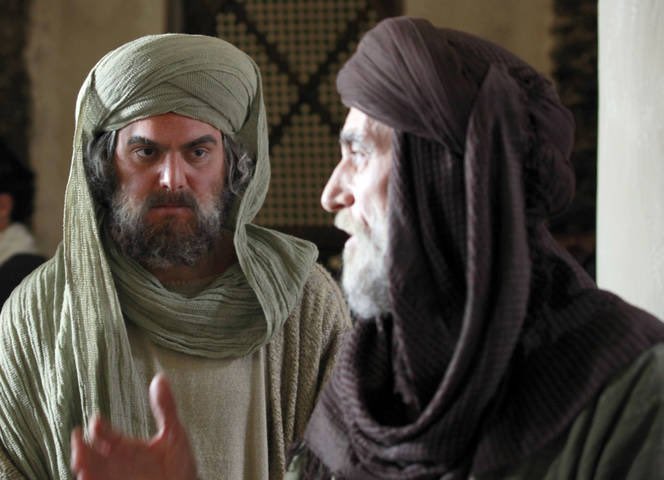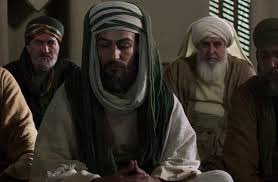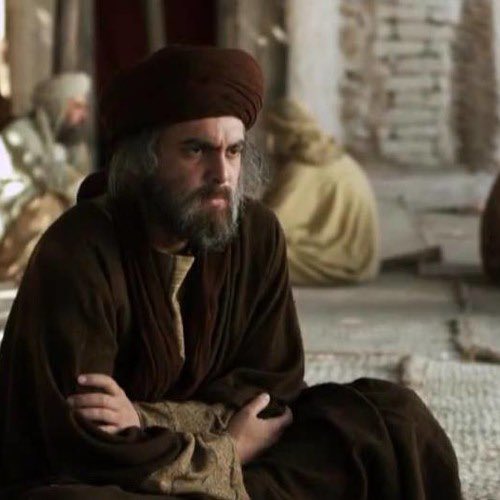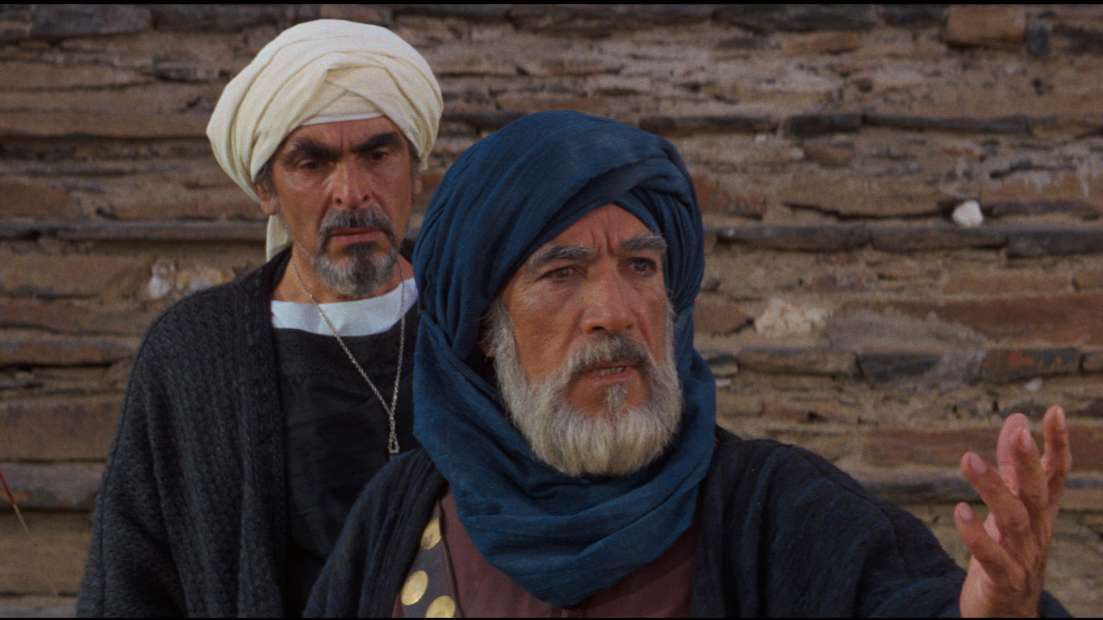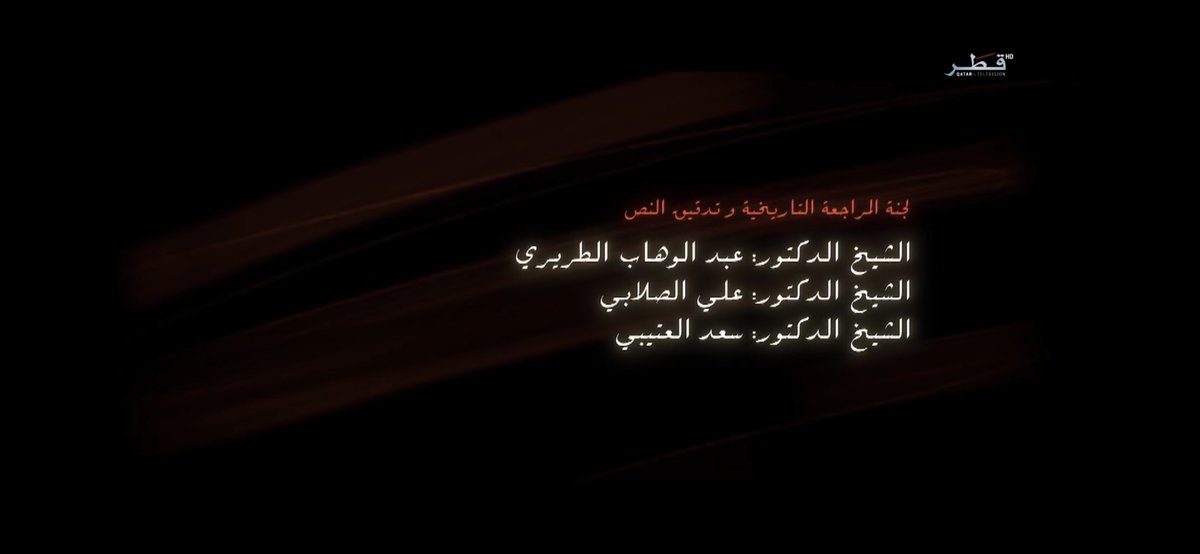A little thread on how Hatem Ali, an icon of contemporary Middle East's drama, broke new grounds both in Syria and in the region. I'll focus on one example, involving two famed Syrian directors, one historical theme, and 40 years of Middle East history. https://twitter.com/hxhassan/status/1343930059271397376
For those unfamiliar with the culture of television in contemporary Middle East, Egyptian & Syrian drama (and especially during the fasting month of Ramadan) are the most popular. During Ramadan in recent decades, Syria has produced some of the best & most popular *history* type.
Inside Syria, Hatem Ali started as an actor, and the first main role I personally remember was in a series called Jawarih (a 'fantasy' drama, on a tribal chieftain who banished his sons to live without his protection for five years, to see who performs the best without him).
Also inside Syria, as a director, Hatem Ali broke new grounds in creating a new generation of Syrian actors and series that became a lot more professional than previous work. He created stars like Tain Hassan, Bassel al-Khayat, and such. He then broke into regional fame:
Among his best were Rabee Qortoba (the Cordoba Spring, 2003, starring Taim Hassan and Nesreen Tafish) & King Farouq (set in Egypt, starring Taim).
But the MOST interesting, to me, is what he did with his work on the second caliph Omar, released in 2012. It did something new.
But the MOST interesting, to me, is what he did with his work on the second caliph Omar, released in 2012. It did something new.
On his series “Omar”, it was the first ever to depict all the companions of Prophet Mohammed, something unthinkable in mainstream Arab television. Something that would get many people killed, but it went smoothly for a number of reasons when it was released in 2012.
About 40 years prior, the most famous work on Islam was “The Message”, produced in both English (starring Anthony Quinn) and in Arabic. One of the most watched shows in the region of all time.
See how the world of drama, and attitudes, changes over time. And how:
See how the world of drama, and attitudes, changes over time. And how:
(The Message was directed by another Syrian filmmaker Mustafa al-Akkad, killed in the 2005 Amman terrorist attacks)
Akkad’s film at the time avoided the depiction of any of the main companions of Prophet Mohammed. This was obviously awkward since the story revolves around them & the Prophet, so the film relied on summarizing key events & dialogues by proxy, via other actors. An example next:
In this scene from the Message (1976), whole developments & dialogues were summarized and related by a bunch of actors, relaying how Islam’s Adhan (call for prayers) came about:
Fast forward, and Hatem Ali’s Omar series depicted all people around the Prophet (something that created a mini storm in clerical circles, but it was remarkably contained since the show obtained a clearance from a council of notable clerics). It went smoothly & was most popular:
This was nothing short of a transformation in attitudes, but missed in the usual commentary on such issues. So much could be said here, about television, cultural change, extremism, rigid views, and how none of that factors in experts’ view of the region and popular views.
In contract to the film in the 70s and in drama all the way till 2012, the show Omar depicted key figures in Islam, and even went further.
The dialogue in Omar factored in controversies, it wasn’t just rosy and romantic. I’ll give examples.
The dialogue in Omar factored in controversies, it wasn’t just rosy and romantic. I’ll give examples.
In this scene, for example, the series deals with the story of how the fourth caliph Ali bin Abi Taleb was unhappy with how the first two caliphs took advantage of the distraction after the death of Prophet Mohammed to take over:
(Even though the Sunni side of the story is depicted, it is not polished as it’s usually done in public. It still shows was skeptical and wasn’t happy with how things went down.)
This scene shows how the first caliph declared war on “the apostates”, the Arab tribes that left Islam or refused to pay respects to the new leadership. Here Abu Bakr argues against all around him, including Omar, in favor of the war & clarifies it’s political not just religious:
Finally, this scene shows the cynicism of Abu Sufiyan and his conversion to Islam when the Muslims returned to Mecca and seized control. Abu Sufiyan here talks to his wife, reminiscing about the old days when he was the chief, with a hint of ambition still as he embraced Islam
Similar points could be said about other works by Hatem Ali. They’re not just made for entertainment. They usually break new grounds, and use historical stories to convey powerful ideas suitable for today.
Hatem Ali took part in early protests in Syria but died in exile.
Hatem Ali took part in early protests in Syria but died in exile.
Found this scene in English subtitles. See the dialogue about how some tribes outside Mecca abandoned Islam. In particular, notice the honest dialogue & mockery about claims of prophethood those days, and why some embraced/abandoned Islam. Not easy to do this in Muslim societies:
Syrian filmmaker Hatem Ali was working on one of the largest drama series to ever be produced in the region, on the Ottoman-era mass conscription of Arab youth (Seferberlik).
A UAE company funded the work as part of the new regional rivalry with Turkey.
A UAE company funded the work as part of the new regional rivalry with Turkey.
The series on the Ottomans is still happening, it seems. With participation from Egyptian & Syrian actors, among others. It was paused during the coronavirus pandemic. Expected to be a huge success and widely distributed in the region’s largest television channels.
Footage from the funeral in Damascus of Syrian filmmaker Hatem Ali, with a few other drama icons, near where he once taught.
The amount of grief expressed by all kinds of Syrians, in and outside the country, has been rare in the past decade.
The amount of grief expressed by all kinds of Syrians, in and outside the country, has been rare in the past decade.

 Read on Twitter
Read on Twitter
